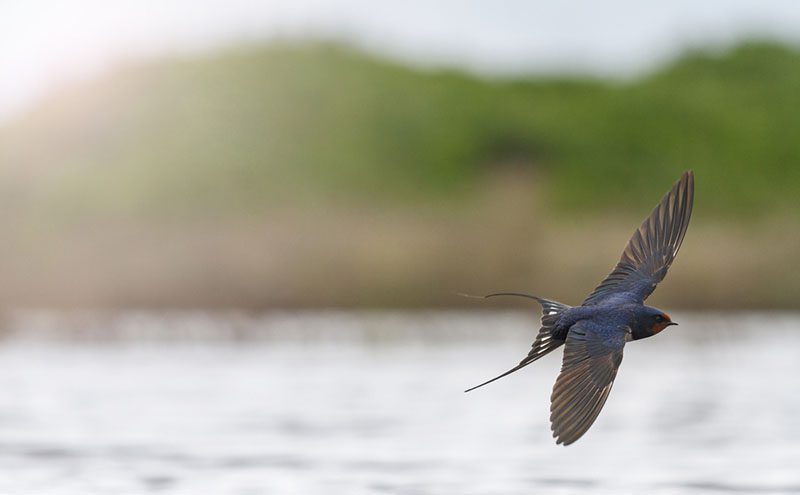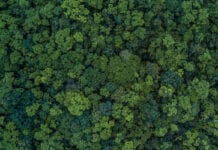
- Unseasonably warm weather linked to climate change
- Weather is encouraging some birds to make nesting attempts, butterflies are starting to emerge and other animals like hedgehogs are coming out of hibernation too soon
- Swallows and house martins have been spotted arriving back in the UK – more than a month early
- The Met Office expects the mild conditions to continue for another week with unsettled, wet and windy weather to return after that
The RSPB is warning that the unseasonably warm weather could lead to a crisis for nature – particularly if it turns cold again, as it did last year.
The charity has received a number of reports about birds attempting to nest and breed, butterflies emerging, hedgehogs, reptiles and insects coming out of hibernation and even migrant birds like swallows and house martins appearing back in the country much earlier than they should.
Martin Harper, the RSPB’s Director of Global Conservation, said: “While the warm weather, bright sunshine and abundant sights and sounds of nature undoubtedly make us all feel better, they should also ring alarm bells. The early signs of spring are likely down to climate change, which is bad news for us all. As we expect the weather to return to temperatures more traditionally associated with this time of year – as they are forecast to – then there could be a real crisis for our birds, insects and other wildlife.”
The charity’s wildlife team has been getting calls from people reporting early nesting attempts and in some cases even early young, with ducklings being spotted across the country.
Reports that hedgehogs and other hibernating species, like some reptiles and butterflies, are waking up earlier than usual, prompted by the warm weather.
Travelling ahead of the ‘Saharan plume’ many birds usually seen in spring are starting to arrive back in the UK after spending a warm winter in Africa. The RSPB is already receiving reports of swallows and house martins being spotted in Cornwall, Devon and south Wales weeks ahead of when they would usually be expected to be seen back in the UK.
Charlotte Ambrose from the RSPB’s Wildlife Team, said: “Birds rely on environmental cues such as temperature to know when to start making a nest and start breeding. Because of the extremely mild weather, some birds and other wildlife are starting early. This is not necessarily a bad thing as it may allow some birds to have an extra brood before the main breeding season starts, but if the weather changes back to more normal conditions, the birds may get caught out and struggle to find enough food for themselves and their young.
“If invertebrates emerge early they will be here when the early nesting birds and their chicks need them, but again a cold snap could mean they don’t survive. Any sudden bad weather can kill-off early flowering plants, which are a source of nectar for insects, meaning they will struggle to find enough food.”
While there isn’t a lot we can do to change the weather forecast, there are things we can do to help the wildlife in our gardens survive a cold snap, including putting out energy-rich foods like meal worms and fat balls, making sure there’s a supply of fresh water for drinking and bathing, providing nest boxes, and – a more long term solution – by planting pollen-rich flowers (the latter’s a more long-term solution).
Climate change is one of the biggest factors impacting nature in the UK. The average temperature in the UK during summer has increased by nearly 1°C since the 1980s – with 17 of the 18 warmest years occurring since the year 2001.
Six ways climate change is impacting birds in the UK: www.rspb.org.uk/our-work/rspb-news/news/stories/6-ways-climate-change-is-impacting-birds-in-the-uk/
A wider look at the impacts of climate change on birds, the Nature of Climate Change, www2.rspb.org.uk/Images/natureofclimatechange_tcm9-409709.pdf
To find out more about the birds in your garden and what you can to do help, please visit: www.rspb.org.uk/birds-and-wildlife/advice/how-you-can-help-birds/







